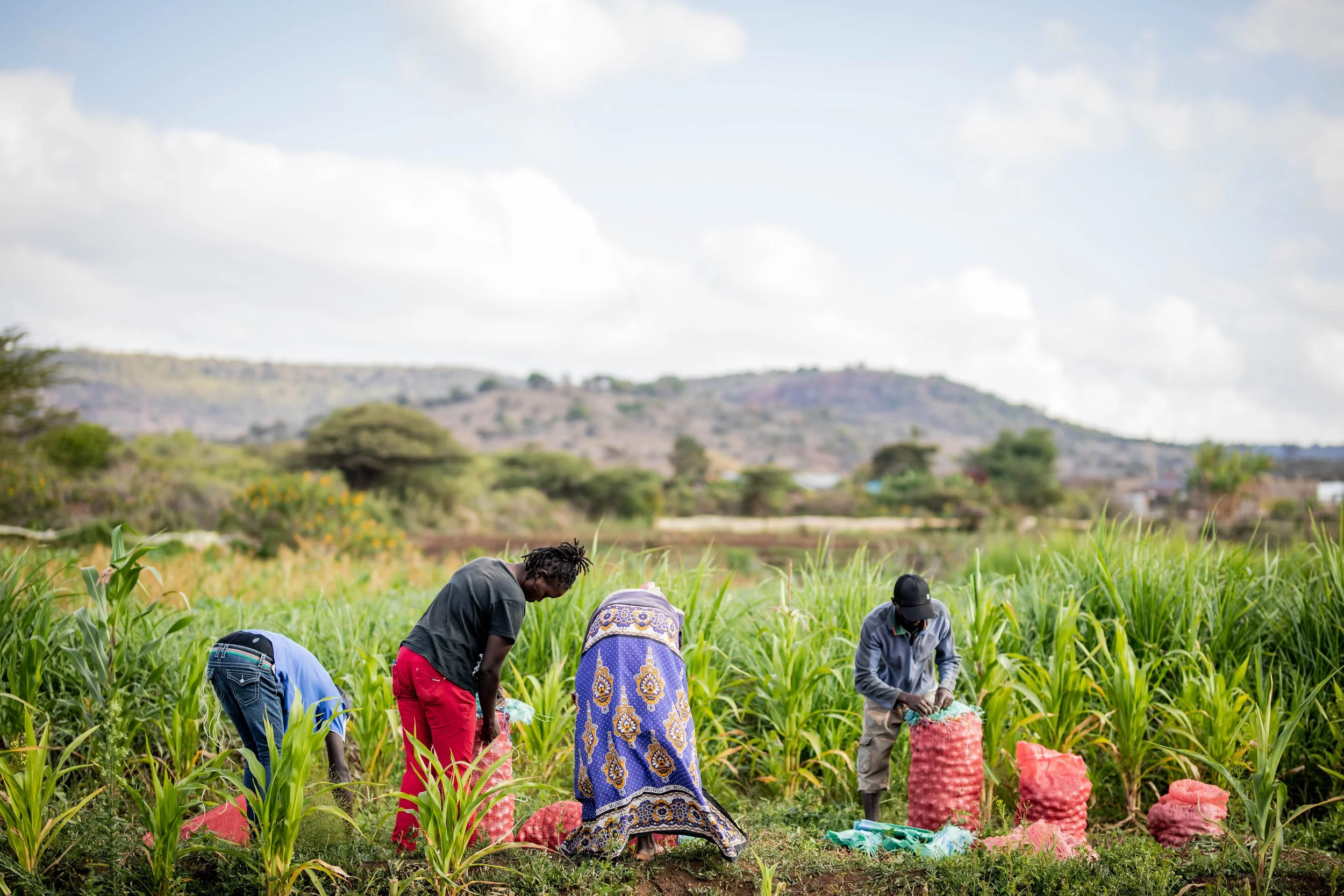Smallholder farmers must be heard at the Africa Climate Summit
A group of farmers in Ngarendare, Meru County, Kenya, sorting and packing onions for sale. Credit: Brian Otieno / Transform Trade
The second Africa Climate Summit (ACS) is well underway, with delegates from all across the continent meeting in the Ethiopian capital, Addis Ababa.
A key precursor to the vital COP30 international climate summit taking place in November, African leaders will meet to agree their priorities for a region that is already facing devastating impacts from climate change.
As ever, the stakes couldn’t be higher – Africa is feeling the brunt of global climate breakdown yet only contributes 4% of the world’s carbon emissions.
The leaders at ACS 2 must get things right –and that means listening to and acting on the concerns of smallholder farmers – who produce up to 70% of the continent’s food supply.
Without the input of these farmers, the summit risks ignoring the priorities of small producers who are on the front line, dealing with everything from floods to droughts, but also have workable solutions to these pressing problems.
What we’re hearing from the farmers we work with is concerning – and we hope delegates at ACS are listening to them.
Erratic weather
The farmers we work with in East Africa have consistently reported that the weather patterns they used to rely on to grow their crops have become erratic.
Climate change has destabilised the onset, duration, and intensity of rain, making it difficult for farmers to predict the right timing for key farming activities like planting and harvest. This has resulted in increased crop vulnerability, lower yields, and higher production risks.
Rising temperatures have reduced soil moisture, and exacerbated pest and disease pressures in crops such as tea, cocoa, and cashew.
The climate’s continuing effect on smallholders must be addressed at ACS and COP30.
Listen to smallholders
Smallholder farmers are on the front lines of the climate crisis – dealing with erratic weather, desertification and increased soil salinity. To put it simply – they are closest to the rapid changes occurring to the environment – so their voices must be heard in high-level discussions.
Despite Africa attracting substantial allocations of global climate finance, only a very small fraction reaches smallholder farmers at the grassroots.
A key barrier is the limited capacity of farmers and their organisations to access climate finance facilities, which often require complex proposals, technical documentation, or collateral that smallholders cannot easily provide.
This structural exclusion further widens the gap between climate policy frameworks and the realities faced by producers on the ground.
It must be fixed – or summits like the ACS risk being nothing more than window-dressing.
Invest in forecasting
Erratic weather patterns mean that accurate weather forecasts have become even more important for smallholder farmers.
Localised climate information is essential for planning farm operations, including planting, fertiliser application, pest control, irrigation scheduling, and harvesting.
Without accurate forecasts, farmers make decisions based on guesswork, exposing them to significant risks of crop loss and reduced productivity.
As a first step, countries must commit to investing in proper weather forecasting technology would allow smallholder farmers to plan further in advance and allow them to further adapt their techniques to a changing climate.
Share the risk
Farmers already struggle to even cover their costs when they sell their produce, whilst grocery retailers often earn huge profits. Climate change is making matters much worse for farmers but they are getting little or no support from the companies that buy their produce.
Climate change risks must be shared fairly along the supply chain so that farmers, who have the fewest resources to adapt, do not continue to bear all of the costs.
Governments at COP30 can take steps to ensure this happens but the UK could already act by strengthening the Grocery Code Adjudicator and introducing a Business Human Rights and Environment Act (BHREA).

